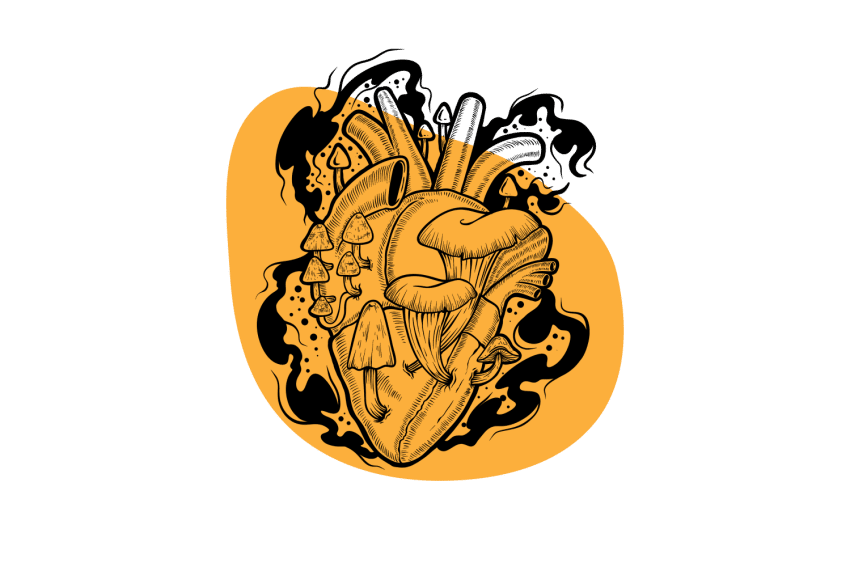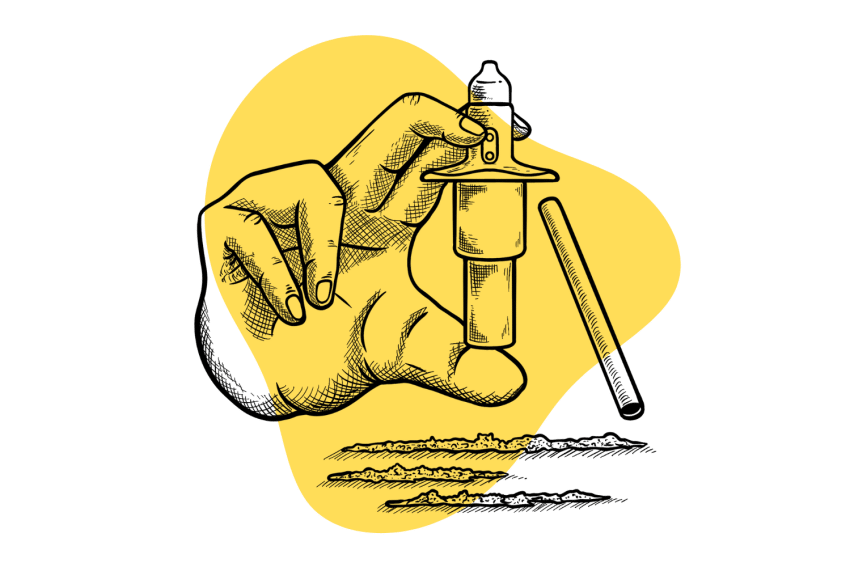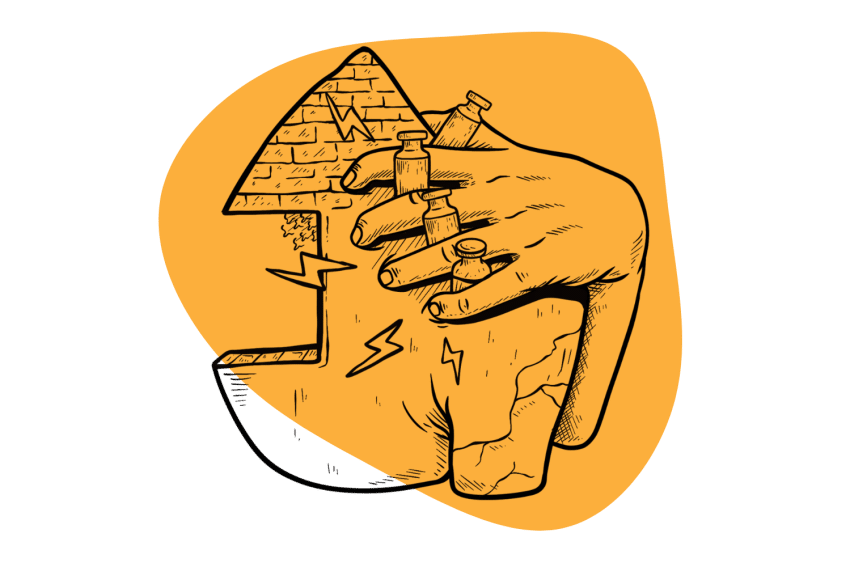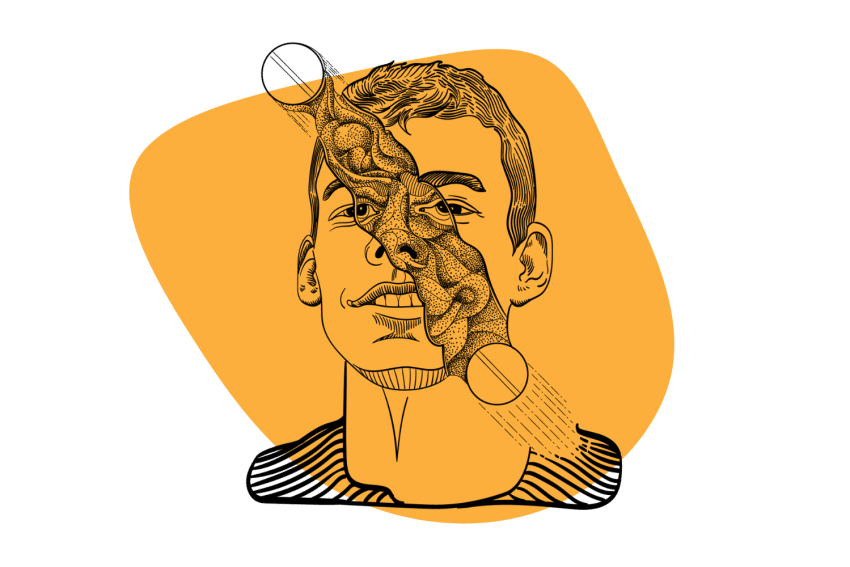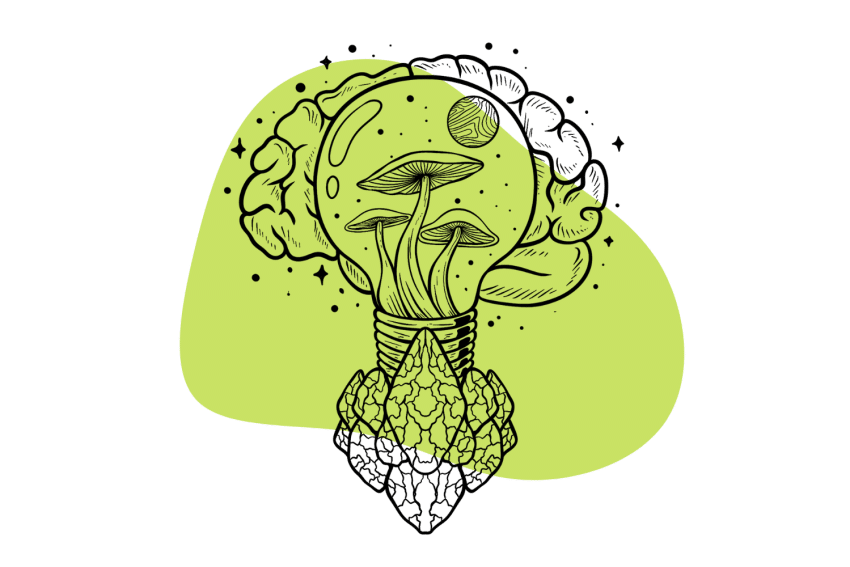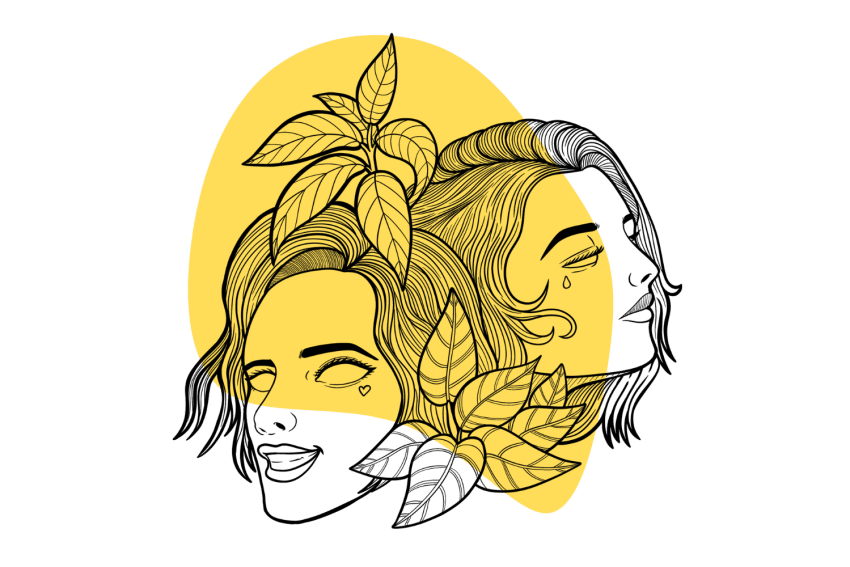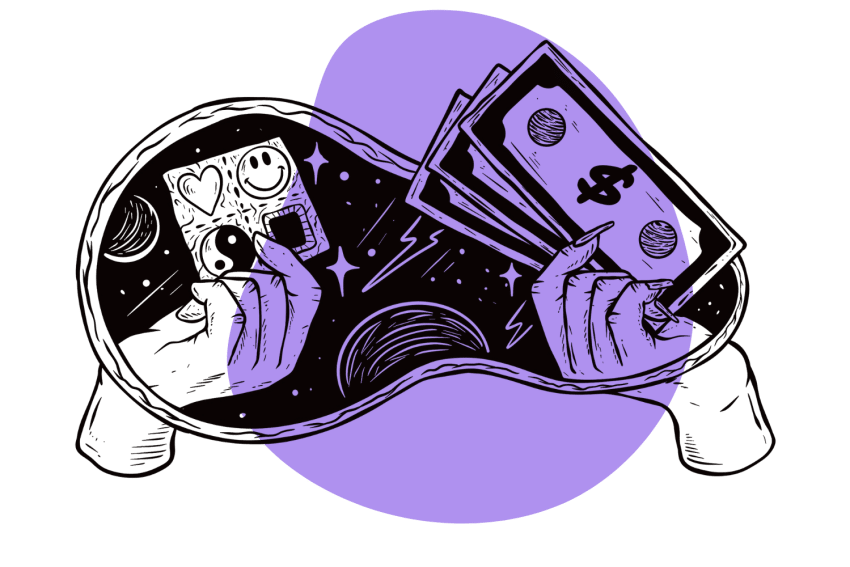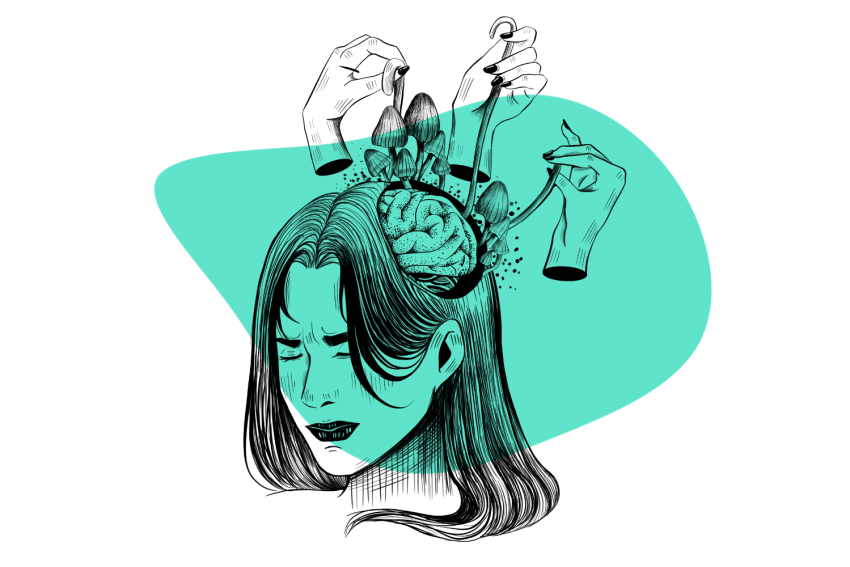How to Make A Psychedelic Integration Workbook: Tips, Tricks, & Templates
Journaling is a core element of psychedelic integration. But there’s no need to drop $50 on one; here’s how to make your own. Templates included.
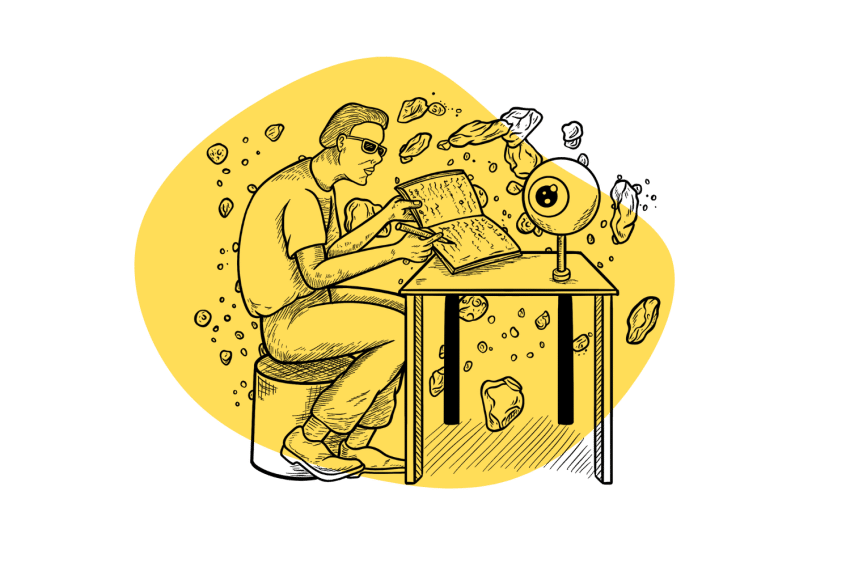
There are many ways users can integrate psychedelics. One of the more popular methods is through journaling.
Journaling is an excellent way to process your thoughts and elevate hidden emotions into your conscious mind, which can then be integrated into your daily life.
Psychedelic integration workbooks are all the rage these days. There are dozens of pre-made versions available online.
While there’s nothing wrong with this option, creating your own journal gives you more autonomy to make it your way and helps solidify the information since you’re in charge of creating all of it.
It’s also a lot cheaper.
Below, we’ll walk you through ways to create your workbook to prepare for and integrate your psychedelic experiences.
Related: 100 Shadow Work Journal Prompts
What is Psychedelic Integration?
Psychedelic integration refers to the active process of uncovering and re-integrating hidden emotions and ideas that arise during a psychedelic experience.
We all have aspects of our unconscious mind that impact the emotions we feel and the decisions we make. Many of these unconscious influences have a negative impact on our lives.
Psychedelics can help uncover the suppressed, unconscious elements that direct our lives and bring them into our conscious awareness.
Integration is the process of acknowledging these unconscious elements and processing them so they no longer control the way we think and act.
Integration is an ongoing process that starts before the psychedelic experience and continues long afterward.
Related: What is Shadow Work?

How to Set Up a Psychedelic Integration Workbook
The first step is to get a notebook. Anything will work here, but, in general, it’s best to use a physical journal rather than an app on your phone.
I prefer to get dotted journals so I can still draw and write in straight lines if I choose to but don’t feel the restriction.
Providing a little framework to your journal can help you keep up with it, and I feel like having to create all elements of the page — lines, breaks in sections, etc. — makes me more invested in it.
You can also type up some prompts on the computer and print them out into a nice little book. I’ve done it this way before, but I generally prefer writing things out by hand instead.
Do what works best for you.
Each entry in your journal should focus on the above three elements — physical, emotional, and spiritual integration — and how you’re tending to them:
- Physical integration — Focusing on the connection between the body and mind and attending to physical sensations and well-being. This might include practices such as yoga, mindful eating, or simply becoming aware of bodily sensations.
- Emotional integration — Delving into feelings and emotional responses, seeking to understand, accept, and manage them effectively. This might involve exploring emotions that arise before, during, or after the psychedelic experience.
- Spiritual integration — Exploring one’s connection to the broader universe, seeking understanding or growth in the context of personal beliefs, values, or a sense of purpose. This could involve practices like meditation, prayer, or engaging with a spiritual community.
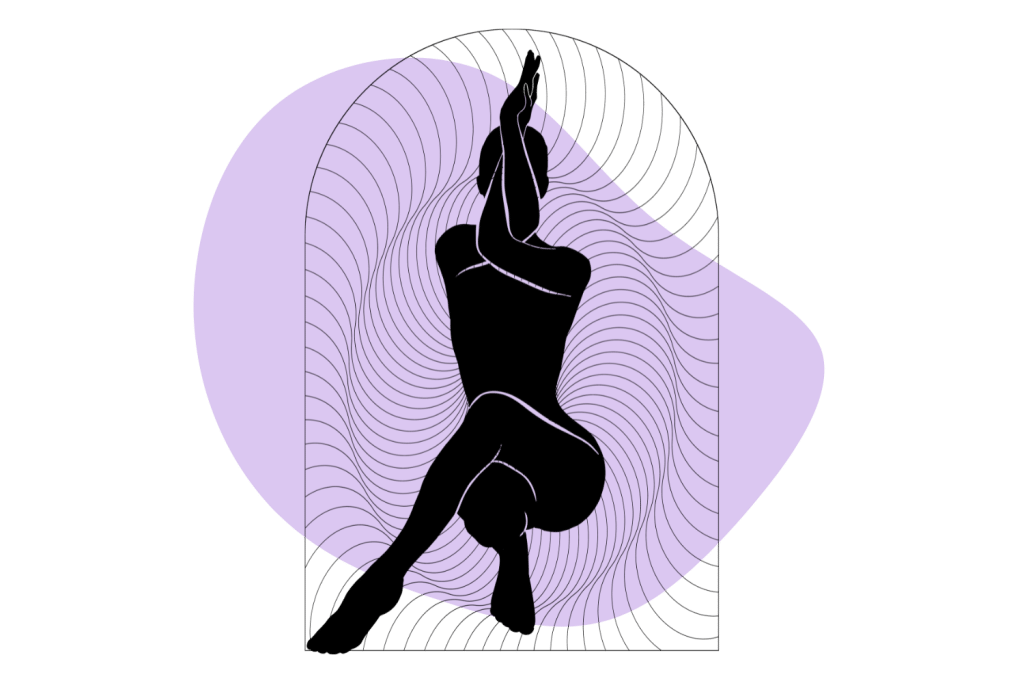
1. Your First Page of the Psychedelic Journal
I like to list several affirmations to myself right after the cover. This way, I have a lovely note to read during the experience, and the location makes it so I don’t have to dig through the notebook for it.
Sort of a “break in case of emergency” type of thing.
In my experience, these notes can feel profound — like a love letter from a really close friend — when tripping. It can give you a boost of happiness and confidence in the course you’re going down and make a big difference in how enjoyable it is.
Alternatively, if you’re artistic, you can create an image for yourself to reflect on later (just make sure it has a positive vibe.)
2. Psychedelic Preparation Journal Prompts
Dedicate as much time as you can before the experience to prepare for it. Intention makes a bigger difference in the outcomes of a trip than many other factors, and you’ll reap the rewards for every minute you put into it.
To start with, set your intentions for the following prompts:
- While on my psychedelic journey, the memories, emotions, and thought patterns I would like to focus on are…
- My dietary restrictions, plan to spend time within my body, and meditation practice leading up to my experience will be…
- If you’re planning to face a dark emotion or memory, you should also dedicate time to writing it out entirely. This helps you prepare for some of the things the trip may bring up and refresh your memory of key details.
Journal Prompts for Motivation During a Trip
If you want to leave a note to yourself, you can consider some prompts like:
- Something I worked really hard for and accomplished is…
- One of my favorite things about my personality, physical appearance, and/or improvements I’ve made in my life is…
- I know I can overcome any difficulties on my trip because…
Notes of encouragement work well, too, and don’t require a high level of thought processing, making them helpful as well.
Some of my favorite notes to leave myself — some of which came to me from previous experiences — include:
- Happiness is worth fighting for, and you’re fighting for it!
- Your past doesn’t have to dictate your future
- The only thing in my way is myself, but I can move
- Nothing is bad (this came from an anxious LSD experience where I received the calming message “Nothing bad can happen to me because nothing bad can happen because nothing is bad.”) It’s become a personal mantra
- I bow to the divine wisdom of all that is; I bow to the divine teacher within (This is the English translation of a Sanskrit mantra Ong Namo, Guru Dev Namo if you’d rather keep things ancient.)
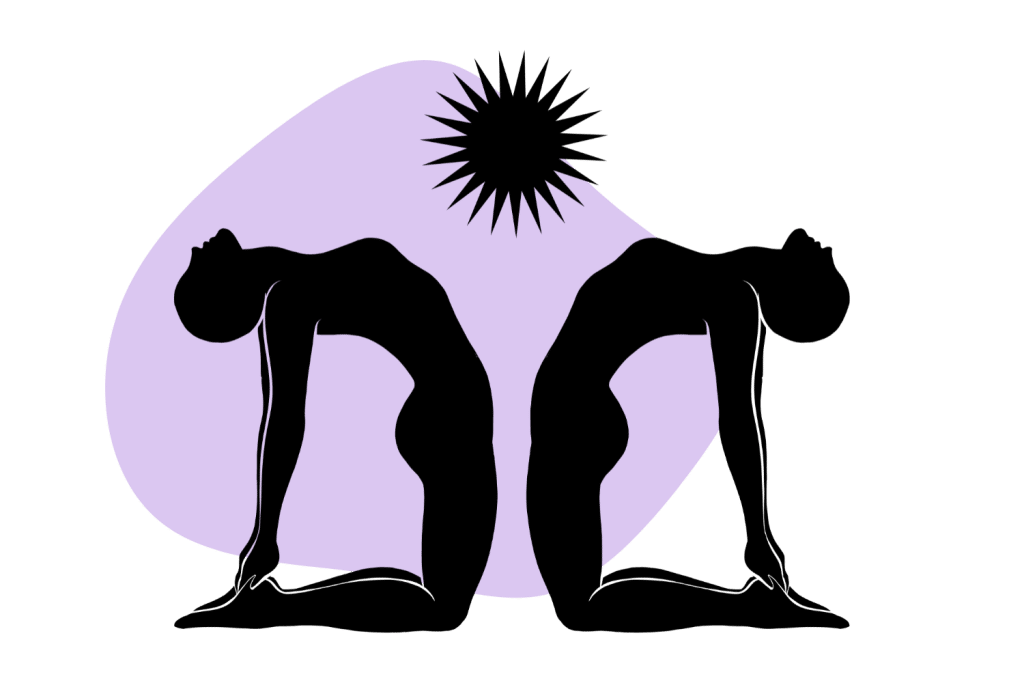
Journal Prompts During a Psychedelic Trip
During your trip, it will be hard to have a cohesive thought, let alone have the capability to write about it. Try to jot down any thoughts which manage to stick around for more than a few seconds.
Don’t think too much about it — just write whatever comes to your mind. If you lose your train of thought, don’t worry. Start a new line and continue writing.
Other prompts you can leave for yourself ahead of time could include:
- Something I’m realizing is more beautiful, impactful, useful, or important than I normally give it credit for it…
- One thing I wish I could bring back with me is…
- My favorite things about my personality, physical appearance, and/or improvements I’ve made are…
- After this is over, I’m going to…
You can also attempt to describe your experience or put pen to paper and just see what comes out.
My first time tripping, I did this and wrote down, “We’re all fuel for the Earth. She gives us energy and food to keep us alive until it’s time to return.” I also wrote down, “This is not my handwriting,” but that’s just because it’s a little hard to write while tripping, so be aware.
These notes offer a trail back to the experience for your integration after. You may not automatically remember something from your trip, but a sentence or key image from the time can help to recall.
Alternateratively/additionally, draw! Either try to draw what you see or just move the pen until it feels like it makes sense to stop. You may not make anything worthwhile to the sober version of you, but it can be an immensely enjoyable experience.
Journal Prompts for Immediately After a Trip
The first entry in your journal should be a free-form, stream-of-consciousness entry recalling everything you can from the experience. Try and do this as soon as you can after the effects wear off before the memory has a chance to fade.
Start with a bulleted list of the key themes, messages, and emotions you felt the trip brought forward, and then talk more about each of them.
Some additional journal entries for processing the experience include:
- The key message I want to take back to my normal life from this experience is…
- Something difficult I overcame during the trip was…
- When I was tripping, the most ENJOYABLE (not necessarily rewarding) part was…
- The difference between this trip and others I’ve had is…
- Next time I take a psychedelic substance, I think I should…
- The craziest experience I had while tripping was…

Continued Journalling After the Experience
Integration doesn’t always last just a few days after the experience. If you find something sticking with you or difficult to move past from your trip, keep journaling through it until you feel it resolves. Conversely, inspirational messages from a psychedelic trip can take a long time to incorporate into your daily life — don’t give up.
Here are some journal prompts you could consider for integrating the psychedelic experience into your daily life in the days and weeks after your trip:
- Something I did today to honor an emotion or message from my psychedelic journey is…
- I feel myself losing grip of the message of… but I’m going to try and recapture it by…
- Emotions I feel when my trip comes to mind are… I’m working to bring these into my life by…
- One thing I need to remind myself of today from my time on psychedelics is… Sometimes I find it difficult to remember it because…
- Is this something I feel like I can handle on my own, or should I seek help from someone with training?
After a few weeks, if you still feel a lingering disturbance from a negative experience while tripping, you should consider seeking out a trained mental health provider or loved one for help. In extreme cases, people may develop PTSD, depression, anxiety, or other concerns from a bad trip.
Even if you feel something really beautiful you’re having trouble bringing into your life, you a therapist can help you drive the message home. A trusted, trained medical professional is always more effective than we are on our own if you have access to one.
What To Avoid When Integrating Psychedelics
Integrating psychedelics is complicated, and it’s easy to lose sight of the point or place too much value on the wrong things.
There are three main problems when it comes to the integration of psychedelics:
- Spiritual Bypassing — Using psychedelics to escape negative emotions and thoughts without wanting to do the complicated work outside of the trip
- Looking for Diamonds at the Dump — Sometimes, an experience is just bad, and you don’t need to spend time trying to make it into something good.
- Over-Mystification of the Trip — Psychedelics can cause powerful mystical experiences which can make things seem like a message from another realm. It’s important to remember you are in control of what you place value in, and intoxicated thoughts are not always as profound as they seem.
Let’s break each of these down, along with how to avoid them:
Spiritual Bypassing
Typically referring to religious practices using spirituality to block out negativity — think, “There’s no need to be sad when you have God.” Psychedelic bypassing is similar, with the caveat of psychedelics’ incredible reliability in creating a mystical experience.
This reliability makes them especially prone to bypassing as it’s really easy to have a good time on psychedelics and take those fuzzy feelings as the message without integration. To be clear: nothing is wrong with using psychedelics for fun.
Rather, with psychedelic bypassing, the problem is in routinely returning to psychedelic drugs for the mystical experience without ever incorporating any of the changes [1]. This is one of the reasons it’s important to integrate recreational experiences as well, to make sure you’re enjoying them for the right reasons.
Another way to avoid bypassing is to intentionally question negative and complicated moments from your trip. These often contain the messages we work hard to avoid in real life and are an important part of the experience.
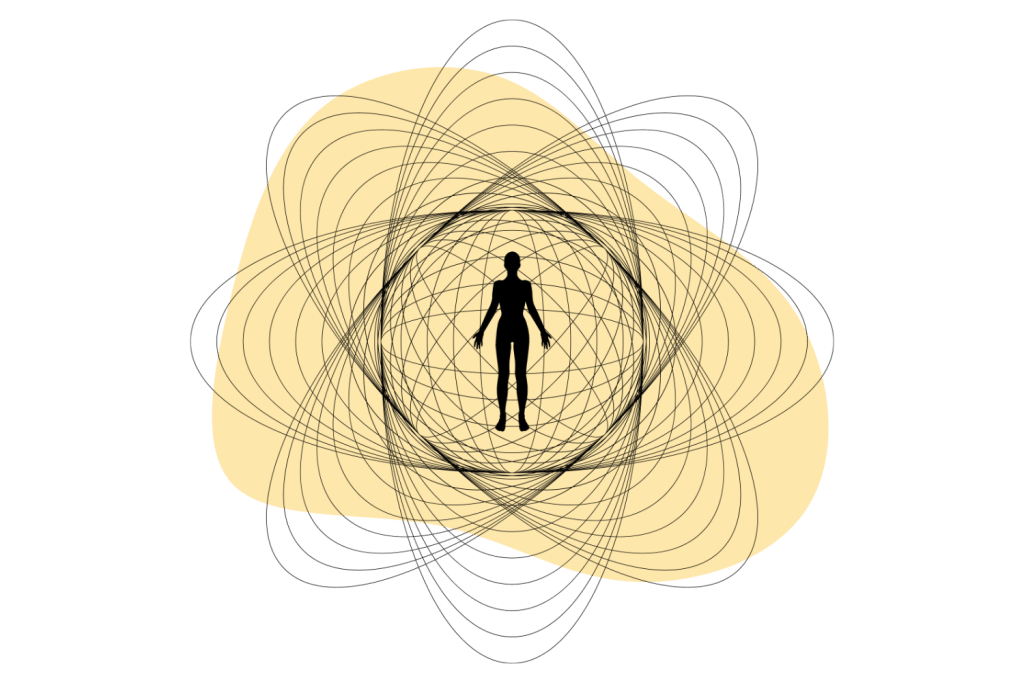
Looking for Diamonds at the Dump
Despite popular belief, bad trips aren’t always the best ones — sometimes they’re just bad [2]. If you have a bad experience with psychedelics and you don’t see value in it, leave it behind and begin the process of moving past it.
Even if you can pull a small bit of inspiration from a horrific trip, it isn’t worth spending the emotional energy within it. A car wreck can be a life-changing experience with a plethora of messages for everyone involved, or it can be a terrifying accident without any foreseeable benefit.
Over-Mystification of Psychedelic Trips
Nobody is saying you can’t have mystical beliefs around psychedelics, and it’s okay to believe in DMT entities and other psychedelic mystical lore and mythology. When this turns into a problem is when we refuse to question the messages we receive from them.
When people unquestioningly follow cult leaders, we acknowledge this is a problem — don’t let your DMT entity, machine elves, or mushroom message become your cult leader. If the message is truly as profound as you believe it is, it should stand up to scrutiny.
While psychedelics feel like a gift from another realm, they’re still largely just molecules that affect us, just like caffeine, nicotine, or alcohol do.
Final Thoughts: Bringing Your Trip Back With You
Integration is an important part of every psychedelic experience. The degree to which a person must work at this varies depending on their specific goals for the experience along with the experience itself.
While you don’t necessarily have to work hard to integrate a trip you’re planning with recreational intent, it still can help ensure your trip stays the way you want it to. Psychedelics don’t offer any guarantees, and trips can always take a left turn — setting up a guardrail to prevent this is paramount.
If you put in the work to make your trip worthwhile, you’ll see incredible dividends in the results.
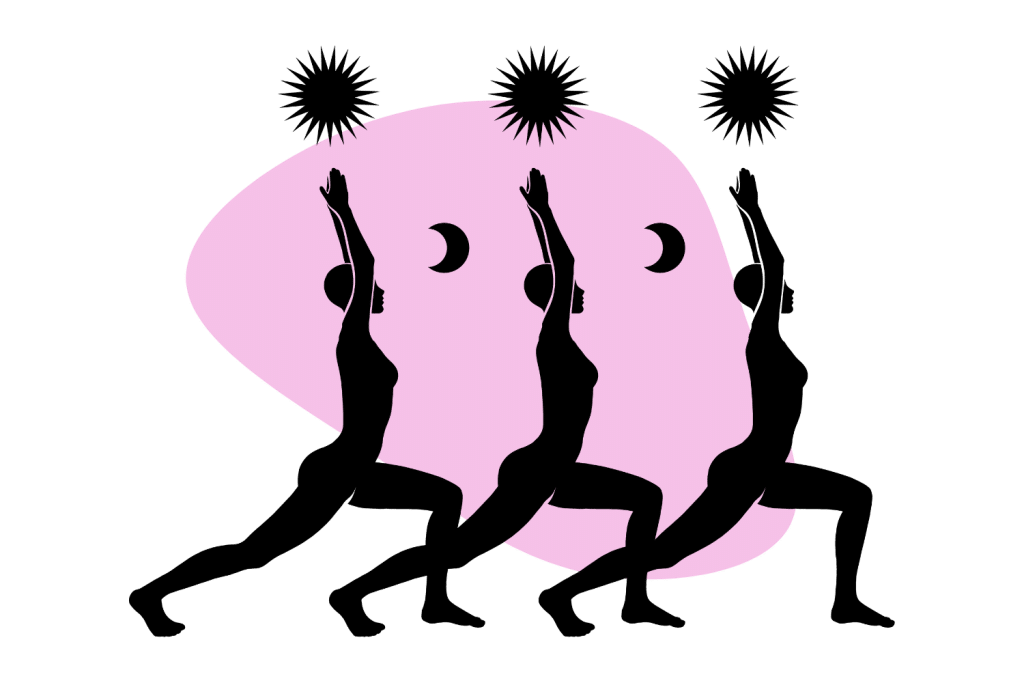
FAQ: Psychedelic Integration
Here are some questions people commonly ask when integrating psychedelics:
1. How Important is Psychedelic Integration?
Integration — on some level — is either beneficial or crucial for a trip, depending on the desired outcomes. If nothing else, returning to the body, mind, and soul you’re comfortable with after a psychedelic trip can be incredibly disorienting, and a plan helps immensely.
Preparation for integration can help you get your footing after coming down from a trip. Once on the ground, you’ll be in a far better place to put in the work of integrating the messages into your life.
2. Are Psychedelics Impactful Without Integration?
Using psychedelics recreationally without integrating the experience isn’t a problem in itself. It’s very common to use psychedelics recreationally just to have as much fun as possible.
One risk this brings about is the potential for psychedelic bypassing, and occasionally, a recreational trip can turn impactful. It may become quickly important to integrate it.
Additionally, even if you’re just planning on having a good time, it’s probably a good idea to prepare your mind and setting for such and plan to integrate it in some form. After all, what good is laughing your ass off for 6 hours if you don’t bring that joy and energy back with you?
3. How Long Does Integration Take?
The length of time for integration varies from person to person and experience to experience. Like therapy, there is no benefit to rushing breakthroughs, so sit back and patiently keep doing the work until you’re confident there isn’t more to do.
Strong experiences — positive or negative — can take longer to integrate or move past. If you find a particular experience is affecting you for a long period after your trip, consider seeking advice from a professional, especially if the experience is a negative one.
4. Should Psychedelics Require Clinical Settings?
Psychedelics should be for the people and accessible to anyone who wants them. However, they are not without risk, and it’s important to remember how negative a bad trip can turn.
If you plan to go on a trip for a slight personal flaw or personality change, you may be perfectly fine on your own. However, if you’re squaring up against PTSD, OCD, and other severe conditions, strongly consider having a professional present when difficult memories resurface.
References
- Gorman, I., Nielson, E. M., Molinar, A., Cassidy, K., & Sabbagh, J. (2021). Psychedelic harm reduction and integration: A transtheoretical model for clinical practice. Frontiers in Psychology, 710.
- Bremler, R., Katati, N., Shergill, P., Erritzoe, D., & Carhart-Harris, R. (2023). Focusing on the negative: cases of long-term negative psychological responses to psychedelics.

